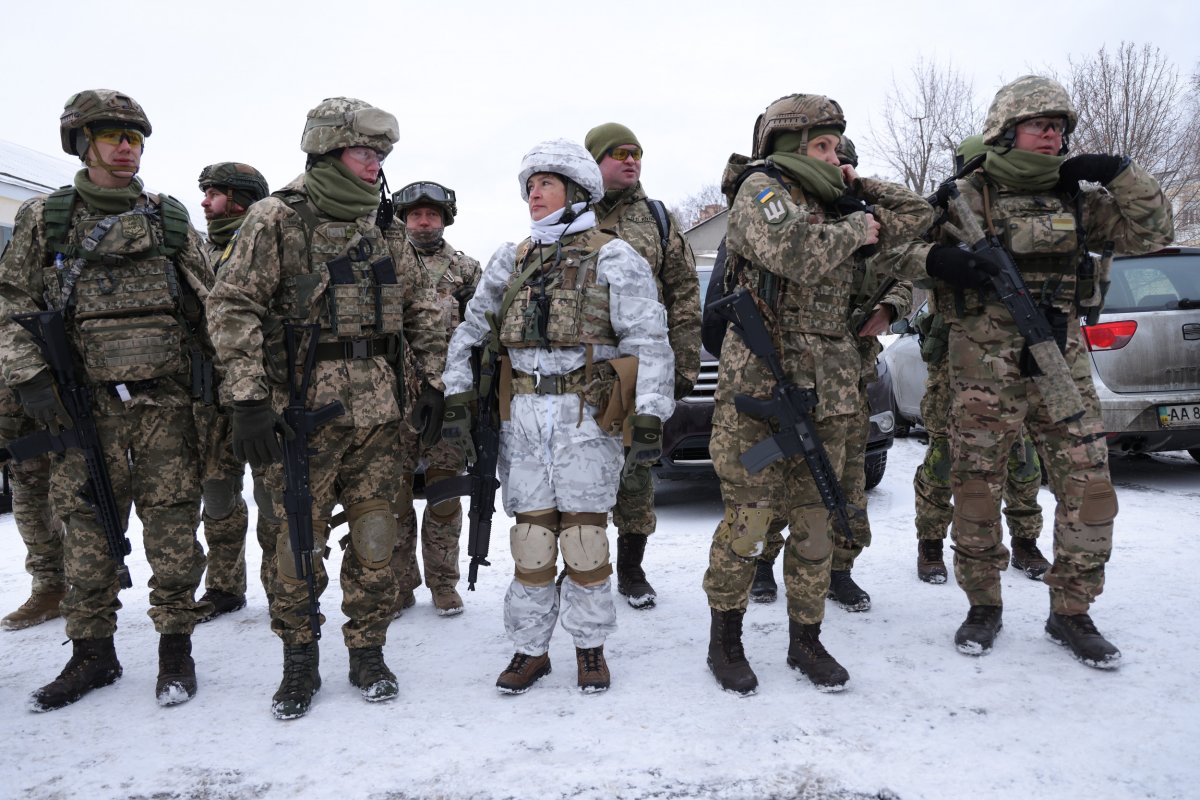Despite weeks of discussions between U.S., NATO and Russian officials over the security crisis in Ukraine, the situation remains as intractable today as it was when Russian forces first started massing troops on the Ukrainian border last spring. U.S. Secretary of State Antony Blinken and Russian Foreign Minister Sergey Lavrov walked away from their talks in Geneva last week with little accomplished beside agreeing to meet again at some point. Russia is insistent that NATO put in writing a guarantee that Ukraine will forever be excluded from the alliance. The U.S. and NATO, meanwhile, are equally as insistent that such a demand is unacceptable. The U.S. is so concerned about an imminent Russian invasion of Ukraine that the Biden administration is in the process of finalizing additional U.S. troop deployments to Eastern Europe, accelerating weapons transfers to the Ukrainian army and ordering the families of U.S. diplomats in Kyiv to leave the country.
Back in the U.S., observers are searching for explanations for Russian President Vladimir Putin's behavior. Explanations vary; some seasoned Russia experts have claimed Putin believes restoring Russia's control over Ukraine is his last piece of unfinished business. Others, including Samuel Charap of the RAND Corporation, argued that Moscow's actions are largely motivated by its frustrations with the war in eastern Ukraine and Kyiv's disinterest in implementing the terms of the Minsk II peace accord.
Both arguments are reasonable and have some evidence supporting them. Yet there is one explanation that is completely off the reservation, even as it continues to proliferate on op-ed pages and in television studios. The case: The U.S. withdrawal from Afghanistan last August emboldened Putin to be more aggressive in Ukraine.
Speaking on CNN's State of the Union on Jan. 17, House Foreign Affairs Committee ranking member Representative Michael McCaul stated that Washington's decision to leave Afghanistan projected weakness to leaders like Putin. Fiona Hill, a former senior director for Russia at the National Security Council, wrote that "America's precipitous withdrawal from Afghanistan" contributed to Russia's view of the U.S. as a flailing power. "Our defeat in Afghanistan in August 2021 no doubt convinced Putin that our resolve to counter his aggression had weakened even more," Michael Vickers, a former CIA operations officer, opined in The Washington Post.
It's a powerful talking point, one that's commonly accepted in the foreign policy mainstream. But it would be more powerful and convincing if there was any evidence whatsoever to back it up. Other than a senior Russian official seeking to use the U.S. withdrawal from Afghanistan as a propaganda item last summer, the inference that U.S. policy in Afghanistan impacted Russia's decision-making on Ukraine is just that: an inference.
The hypothesis being proposed by McCaul, Hill and Vickers (among others) is anchored in a larger debate about U.S. credibility in international relations. The term "credibility" in this context includes the willingness of the U.S. to fulfill its security commitments to allies, whether U.S. threats and promises are believed, and the notion that insufficient U.S. resolve in one area of the world will irrevocably impact the U.S. in another. The credibility argument is an enormously powerful one, frequently deployed whenever a U.S. president even contemplates thinning out a troop presence. Credibility was invoked again and again (often from the lips of former senior U.S. national security officials) between the months of August and September last year, when the chaotic scenes at Kabul airport were incessantly broadcasted.

The only problem: Credibility is misunderstood and overused. Similar arguments were employed by opponents of the U.S. troop withdrawal from Vietnam, who suggested it would result in a cascade of negative consequences for the U.S. as a global power, with allies doubting American leadership and adversaries becoming more emboldened. The talking point, however, turned out to be devoid of substance; the Soviet Union wasn't so much emboldened by the U.S. jetting out of Vietnam as it was confused about why Washington would expend so much blood and treasure on a small, peripheral country.
We've been here with Russia before. When the Russian military captured Crimea in February 2014, commentators faulted Washington's supposed lack of leadership as much as Russia's bellicosity. Some tied Russia's military moves in Ukraine to the Obama administration's decision to not strike Syria's chemical weapons facilities the year prior. Because the U.S. didn't have the stomach to take action in Syria, it was alleged that Putin concluded the U.S. wouldn't do much if Russia invaded Ukraine.
But this, too, was merely a supposition devoid of much evidence. When journalist Julia Ioffe interviewed Kremlin insiders years later and asked whether the U.S. declining to bomb Syria in 2013 convinced Putin to invade Ukraine, the insiders exhibited a combination of confusion and eye-rolling. The general response to the question was no, Syria had nothing to do with Ukraine. Putin didn't act in Ukraine because of any "red-lines" that were breached in Syria, but rather because the pro-Russian government in Kyiv was overthrown by thousands of protesters who wanted to bring Ukraine closer into the Western orbit.
Those tying Afghanistan and Ukraine today are making the same mistake as those who attempted to link Syria to Ukraine eight years ago, connecting two totally different circumstances, with an entirely different set of characteristics, players, interests and facts on the ground. To believe the two are interlaced is to essentially make the case that Putin would have been deterred from saber rattling in Ukraine if the U.S. continued to bog itself down in an unpopular, unwinnable and strategically pointless war—a $2.3 trillion morass that cost the lives of more than 2,400 its soldiers.
Daniel R. DePetris is a fellow at Defense Priorities and a foreign affairs columnist at Newsweek.
The views expressed in this article are the writer's own.
Uncommon Knowledge
Newsweek is committed to challenging conventional wisdom and finding connections in the search for common ground.
Newsweek is committed to challenging conventional wisdom and finding connections in the search for common ground.
About the writer
To read how Newsweek uses AI as a newsroom tool, Click here.








